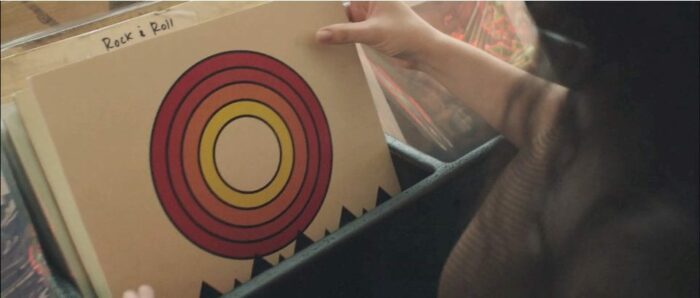It was inevitable. By the time the fifth track on The Gaslight Anthem’s Handwritten was finished, I would have already cried as I drove from my hometown (Canyon, TX) to where I lived in Amarillo, TX about 15 miles to the north. I know why I was crying, but I don’t know why I found catharsis in this specific album so often; the words of Brian Fallon and crew did not directly speak to the grief I was dealing with. Yet, there I was, sobbing on numerous occasions with my truck windows rolled down, driving over those flatlands, while I listened to Fallon long for lovers and connection with his gritty voice that ricocheted between Mike Ness and Bruce Springsteen.
I think Handwritten just happened to be the album I was consistently spinning when my father was diagnosed with early-onset Alzheimer’s at the age of 58. My father was a big man who spent most of his life doing manual labor on a ranch in my infancy and on various rent houses we managed during the remainder of my life. At the time of his diagnosis, I was transitioning from being an interim college minister to working at Barnes & Noble and working alongside my father on rent houses. I remember the day he came back to the rent house after being told of his diagnosis by a family friend and he looked me straight in the eyes and said, “whatever this is and whatever is about to happen to me, I promise I will fight it as much as I can.” Unfortunately, it remains a fight he is still losing to this day.

However, as I was forced to witness his increasing inability to track from day to day and then his frustration as he recognized his own inability to track. I would drive to my home after a workday and sob as I navigated I-27 between Amarillo and Canyon through bleary eyes. Because Handwritten was consistently in my truck stereo, it would be the soundtrack to my sorrow.
When Fallon sings:
“Every word handwritten
And with this pen, I thee wed
From my heart to your distress
Every word handwritten,”
I felt every bit of it. Even if his longing was not directed towards the eventual erasure of memory and the inevitable death of a loved family member, his voice soothed my heartache. I felt his words move from his heart to my distress as if the words became incarnated in the space of that F-150 cab.
Bloodlines
Yet it was the song “Keepsake” that would elicit my voice to join in. Something about that song grounded the rest of the album for me and threaded throughout the melancholy and deconstructed nostalgia that Fallon would often sing about. The song felt like a lament for the loss of family, the loss of a father. In the case of the song, an absent father. In my case, the slow erasure of my father from my life.
The culmination of the song in the final verse is a gut punch.
“Until I’m free at last from this shadow that hangs
Surely you wonder sometimes
But I’m sure you won’t sympathize
Just what a man’s to become
But just like his daddy’s done
I just want to love someone who has the same blood,
who has the same blood.”

The longing to be in a relationship with someone who knows you from when you were knitted in the womb, who helped to bring you into this world, is one of the most powerful and most fraught relationships in everyone’s life. I would sing along with Fallon more forcefully here as I visualized myself in my father’s shoes; the agony he was going through—that so many go through in the world. I felt the full weight of his suffering, knowing that he had been given a death sentence. Knowing this was one of the cruelest forms of death as well. Knowing that I, too, due to the genetic elements that sometimes inhabit early-onset Alzheimer’s, could follow in his footsteps one day. “Just what a man’s to become, but just like his daddy’s done” would hit me palpably within the heaving cries of my grief.
Fallon has this ability for visceral phrasing that maintains a poetic rhythm, yet does not mince any words. He is concerned with moving beyond the easy nostalgia of memory. He wants to evoke the past without falling victim to it. All of the music of The Gaslight Anthem conjures ’50s imagery of hot rods and slicked-back hair only to see the violence and falsities that lurked behind the perceptions we had of those days the whole time. Handwritten takes this formula and makes it feel like Fallon is turning his focus on himself, on his past, seeking to do the hard work of digging the past up to examine it and see it for what it really is. To deny ourselves the comfort of nostalgia so that we may see the path forward into the future.
A Transcendent Hope
The final song on the formal record gives a sacred tone of human despair when Fallon sings,
“Now everybody lately is living up in space
Flying through transmissions on invisible airwaves
With everything discovered, just waiting to be known
What’s left for God to teach from his throne
And who will forgive us when he’s gone.”
As someone who has religious faith, this note in the final song would wreck me as I finished the album. It gave a name to the despair I felt in walking through this disease with my father (along with my sister and mother) and it gave hope in a transcendence that gives these relationships meaning even when a loss happens. By not seeing that big picture and becoming too myopic, we end up crushing the ones we love with expectation and putting our hope in them instead of something that transcends death. I can see my father slowly become someone I no longer know, to lament the fact that the father I knew is no more, and not succumb to utter despair, but instead find hope in a reunion and the end of all pain.
All of the imagery throughout The Gaslight Anthem’s Handwritten remains a salve for a suffering soul. It remains an album that requires all of the listener’s “blood” to be spilled, to bare their very souls. I know that all of my blood has been spilled to it over the years and will continue from here on out.

